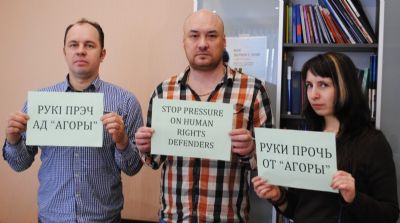A UN committee charged with allowing non-governmental organizations (NGOs) to gain greater access to the UN, but whose members include states infamous for denying freedom of association, has derailed multiple NGOs' requests for UN NGO "status" or "accreditation." NGOs seek UN accreditation because it normally permits NGOs to attend meetings, circulate documents, address UN sessions, and sometimes hold events inside the UN. The NGO Committee is composed of 19 UN Member States, including repressive anti-NGO regimes like China, Iran, Sudan, Venezuela, Russia, and Cuba. Such countries outnumber Western members of the Committee. Their standard operating procedure is to defer applications session after session with inappropriate, specious or repetitive questions and demands of the NGOs.
At the May 23, 2017 meeting, Cuba and Russia blocked accreditation of International Media Support, a Danish organization supporting media freedoms, by asking for funding information- despite the United States representative noting that detailed funding information had been provided. Nicaragua blocked accreditation of Soulforce, Inc, a U.S. organization supporting LGBQT rights, by asking whether the organization works outside of the United States. Russia blocked accreditation of North Korea Intellectuals Solidarity, a South Korean NGO dedicated to promoting political, social, and economic change in North Korea, by asking whether the organization understood that the North Korean people might disagree with their proposals. Sudan blocked the Salam for Democracy and Human Rights, a United Kingdom NGO dedicated to the promotion of human rights in Bahrain, by asking for registration documents for Switzerland in addition to the registration documents already provided for Sweden. China blocked the Wockhardt Foundation, an Indian organization, for listing the Dalai Lama as a spiritual advisor. Just a normal meeting of the UN NGO Committee.
May 23, 2017

